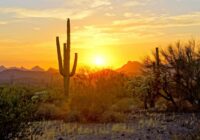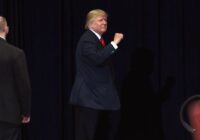The linkage between economic growth and environmental degradation is a well-known topic. The burning question has become whether there is a trade-off between sustaining economic activities and maintaining the conditions of natural resources, or whether economic growth can go in harmony along with environmental protection measures. The direct interconnected relationship between fossil fuel consumption and environmental degradation has posed an interesting policy challenge.
Water World: Is Climate Change Driving Our Future Out to Sea?
Burning fossil fuels releases carbon dioxide and other greenhouse gases that trap heat in the atmosphere, making them major contributors to climate change. On the other hand, high industrial activities, alongside rapidly increasing populations, put growing pressure on energy demand.
The Example of Qatar
Qatar has made remarkable economic achievements over the past few decades. Yet Qatar is facing a trade-off between boosting its economic growth and lowering its carbon dioxide emissions. Its strategic mandate to boost economic development, along with other areas related to sustainability, makes Qatar an interesting country to analyze.
The World Bank defines Qatar as one of the richest countries in the world in terms of GDP per capita. Its economy is highly dependent on oil and gas production, which accounts for more than 50% of GDP, 85% of export earnings and 70% of government revenues. The country is also a major player in liquefied natural gas. Nonetheless, Qatar’s high dependence on fossil fuels has resulted in an increase in the CO2 emissions level when compared to global averages.
To combat the rising carbon emission percentages and lower environmental pressures, Qatar is introducing strict policy measures to achieve sustainable development through four central pillars: economic, social, human and environmental development. While many disruptions have occurred over the past few years, including fluctuations in oil and gas prices, economic downturns and a deadly pandemic, nobody expected an economic blockade.
The Diplomatic Rift
In June 2017, Saudi Arabia, the United Arab Emirates, Bahrain and Egypt cut diplomatic relations with Qatar. They prohibited Qatar-registered planes and ships from utilizing their airspace and sea routes, and the Saudis also blocked Qatar’s only land border.
This point is of particular importance as the deterioration in relations among the Gulf neighbors urged Qatar to rethink its sustainable development goals while meeting local demand. At the beginning of the blockade, the country relied heavily on importing several commodities, especially food items. Later, it accelerated initiatives and programs to diversify the economy and reduce reliance on imports.
Achieving carbon neutrality is also factored into all Qatar’s initiatives. For example, by the end of 2022, Qatar aims to deliver the first carbon-neutral FIFA World Cup in the history of the event. All stadiums and infrastructure are subjected to rigorous sustainability standards. Several air quality monitoring stations and extensive recycling programs are being introduced, along with the construction of the eight stadiums that will be used during the football tournament.
Qatar has since become much more independent across several sectors, including food production and transport, making it a case study on how to transform challenges into opportunities for growth.
This was also evident with total carbon emissions. According to my own analysis, carbon emission per capita fell by 13% as of 2018 from a historical record in 2000. Since then, total carbon emissions have increased as the economy has grown but at a slower rate, meaning that Qatar is undergoing expanding relative decoupling. In the 2008 to 2018 period, a 1% change in GDP resulted in a fall of CO2 emissions, from 0.65% to 0.44%. This drop is very relevant to Qatar as several measures have been applied, particularly over the last 10 years, to reduce emissions.
A Reduction in Emissions
While Qatar’s total emissions have declined over recent years, policies to increase energy efficiency, diversify the energy mix by introducing more renewables, support technological development to improve energy efficiency in a desert climate, and implement energy demand management programs to maintain the same trend of decline and achieve climate change objectives have been increasingly crucial.
The heightened pressure caused by the blockade on Qatar is now over, but what is needed are more synergies and collective efforts across the Gulf Cooperation Council (GCC) to stimulate economic diversification and minimize carbon emissions. Member states of the GCC are sharing multiple environmental, social and economic factors that should incentivize them to cooperate to meet their climate change objectives and economic development goals.
*[Saad Shannak is a scientist at Qatar Environment and Energy Research Institute, part of Hamad Bin Khalifa University (HBKU) in Qatar. The views expressed are the author’s own and do not necessarily reflect the university’s official stance.]
The views expressed in this article are the author’s own and do not necessarily reflect Fair Observer’s editorial policy.
Support Fair Observer
We rely on your support for our independence, diversity and quality.
For more than 10 years, Fair Observer has been free, fair and independent. No billionaire owns us, no advertisers control us. We are a reader-supported nonprofit. Unlike many other publications, we keep our content free for readers regardless of where they live or whether they can afford to pay. We have no paywalls and no ads.
In the post-truth era of fake news, echo chambers and filter bubbles, we publish a plurality of perspectives from around the world. Anyone can publish with us, but everyone goes through a rigorous editorial process. So, you get fact-checked, well-reasoned content instead of noise.
We publish 2,500+ voices from 90+ countries. We also conduct education and training programs
on subjects ranging from digital media and journalism to writing and critical thinking. This
doesn’t come cheap. Servers, editors, trainers and web developers cost
money.
Please consider supporting us on a regular basis as a recurring donor or a
sustaining member.
Will you support FO’s journalism?
We rely on your support for our independence, diversity and quality.








Comment